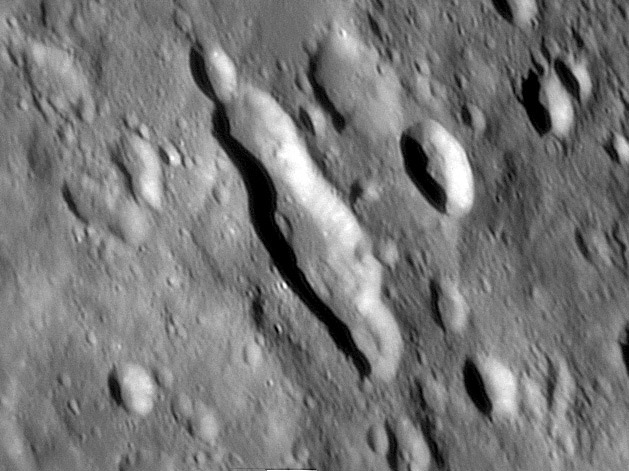Difference between revisions of "February 25, 2010"
| Line 1: | Line 1: | ||
__NOTOC__ | __NOTOC__ | ||
=A Bulbous Slot= | =A Bulbous Slot= | ||
| − | |||
<!-- ws:start:WikiTextHeadingRule:1:<h1> --> | <!-- ws:start:WikiTextHeadingRule:1:<h1> --> | ||
<!-- ws:start:WikiTextLocalImageRule:16:<img src="/file/view/LPOD-Feb25-10.jpg/122961083/LPOD-Feb25-10.jpg" alt="" title="" /> -->[[File:LPOD-Feb25-10.jpg|LPOD-Feb25-10.jpg]]<!-- ws:end:WikiTextLocalImageRule:16 --><br /> | <!-- ws:start:WikiTextLocalImageRule:16:<img src="/file/view/LPOD-Feb25-10.jpg/122961083/LPOD-Feb25-10.jpg" alt="" title="" /> -->[[File:LPOD-Feb25-10.jpg|LPOD-Feb25-10.jpg]]<!-- ws:end:WikiTextLocalImageRule:16 --><br /> | ||
| − | <em>south up image by [mailto:dpeach_78@yahoo.co.uk Damian Peach]</em><br /> | + | <em>south up image by [mailto:dpeach_78@yahoo.co.uk" rel="nofollow Damian Peach]</em><br /> |
<br /> | <br /> | ||
Famous craters are always observed, but the Moon has thousands of fascinating other features worth seeking out. One of the most bizarre looking crateriforms is Rheita E, a slot-like depression north of the Rheita Valley. Rheita E (66 by 32 km) appears to be made of three overlapping craters which probably formed simultaneously since there are no walls between them. Somewhat similar intersecting crater chains make up parts of the Rheita Valley. Because the Rheita Valley is radial to Mare Nectaris it is widely interpreted as a secondary crater chain made by ejecta during the formation of that basin. This encourages the speculation that Rheita E is also a basin secondary crater chain. The only problem is that E is not radial to anything except the southern end of Mare Fecunditatis or perhaps the Balmer basin. But both of these are very ancient basins with little topographic expression; it seems inconceivable that the relatively sharp-rimmed Rheita E could be related to them. So what is it? A chance triple impact? The Schiller of the south-east quadrant? Whoever provides the best explanation receives a free subscription to LPOD!<br /> | Famous craters are always observed, but the Moon has thousands of fascinating other features worth seeking out. One of the most bizarre looking crateriforms is Rheita E, a slot-like depression north of the Rheita Valley. Rheita E (66 by 32 km) appears to be made of three overlapping craters which probably formed simultaneously since there are no walls between them. Somewhat similar intersecting crater chains make up parts of the Rheita Valley. Because the Rheita Valley is radial to Mare Nectaris it is widely interpreted as a secondary crater chain made by ejecta during the formation of that basin. This encourages the speculation that Rheita E is also a basin secondary crater chain. The only problem is that E is not radial to anything except the southern end of Mare Fecunditatis or perhaps the Balmer basin. But both of these are very ancient basins with little topographic expression; it seems inconceivable that the relatively sharp-rimmed Rheita E could be related to them. So what is it? A chance triple impact? The Schiller of the south-east quadrant? Whoever provides the best explanation receives a free subscription to LPOD!<br /> | ||
<br /> | <br /> | ||
| − | <em>[mailto:tychocrater@yahoo.com Chuck Wood]<br /> | + | <em>[mailto:tychocrater@yahoo.com" rel="nofollow Chuck Wood]<br /> |
| − | Classic LPOD from [http://www.lpod.org/?m=20060202 Feb 2, 2006]</em><br /> | + | Classic LPOD from [http://www.lpod.org/?m=20060202" rel="nofollow Feb 2, 2006]</em><br /> |
<br /> | <br /> | ||
<strong>Technical Details</strong><br /> | <strong>Technical Details</strong><br /> | ||
| Line 16: | Line 15: | ||
<strong>Related Links</strong><br /> | <strong>Related Links</strong><br /> | ||
Rükl plate [http://the-moon.wikispaces.com/R%C3%BCkl+68 68]<br /> | Rükl plate [http://the-moon.wikispaces.com/R%C3%BCkl+68 68]<br /> | ||
| − | Damian's [http://www.damianpeach.com/lunar.htm website]<br /> | + | Damian's [http://www.damianpeach.com/lunar.htm" rel="nofollow website]<br /> |
<br /> | <br /> | ||
<hr /> | <hr /> | ||
| − | <div>You can support LPOD when you buy any book from Amazon thru [http://www.lpod.org/?page_id=591 LPOD!]<br /> | + | <div>You can support LPOD when you buy any book from Amazon thru [http://www.lpod.org/?page_id=591" rel="nofollow LPOD!]<br /> |
</div> | </div> | ||
| − | |||
---- | ---- | ||
===COMMENTS?=== | ===COMMENTS?=== | ||
Click on this icon [[image:PostIcon.jpg]] at the upper right to post a comment. | Click on this icon [[image:PostIcon.jpg]] at the upper right to post a comment. | ||
Revision as of 19:20, 4 January 2015
A Bulbous Slot

south up image by " rel="nofollow Damian Peach
Famous craters are always observed, but the Moon has thousands of fascinating other features worth seeking out. One of the most bizarre looking crateriforms is Rheita E, a slot-like depression north of the Rheita Valley. Rheita E (66 by 32 km) appears to be made of three overlapping craters which probably formed simultaneously since there are no walls between them. Somewhat similar intersecting crater chains make up parts of the Rheita Valley. Because the Rheita Valley is radial to Mare Nectaris it is widely interpreted as a secondary crater chain made by ejecta during the formation of that basin. This encourages the speculation that Rheita E is also a basin secondary crater chain. The only problem is that E is not radial to anything except the southern end of Mare Fecunditatis or perhaps the Balmer basin. But both of these are very ancient basins with little topographic expression; it seems inconceivable that the relatively sharp-rimmed Rheita E could be related to them. So what is it? A chance triple impact? The Schiller of the south-east quadrant? Whoever provides the best explanation receives a free subscription to LPOD!
" rel="nofollow Chuck Wood
Classic LPOD from " rel="nofollow Feb 2, 2006
Technical Details
Dec 20, 2005, 14″ Schmidt Cassegrain. Lumenera LU075M CCD camera.
Related Links
Rükl plate 68
Damian's " rel="nofollow website
COMMENTS?
Click on this icon File:PostIcon.jpg at the upper right to post a comment.



